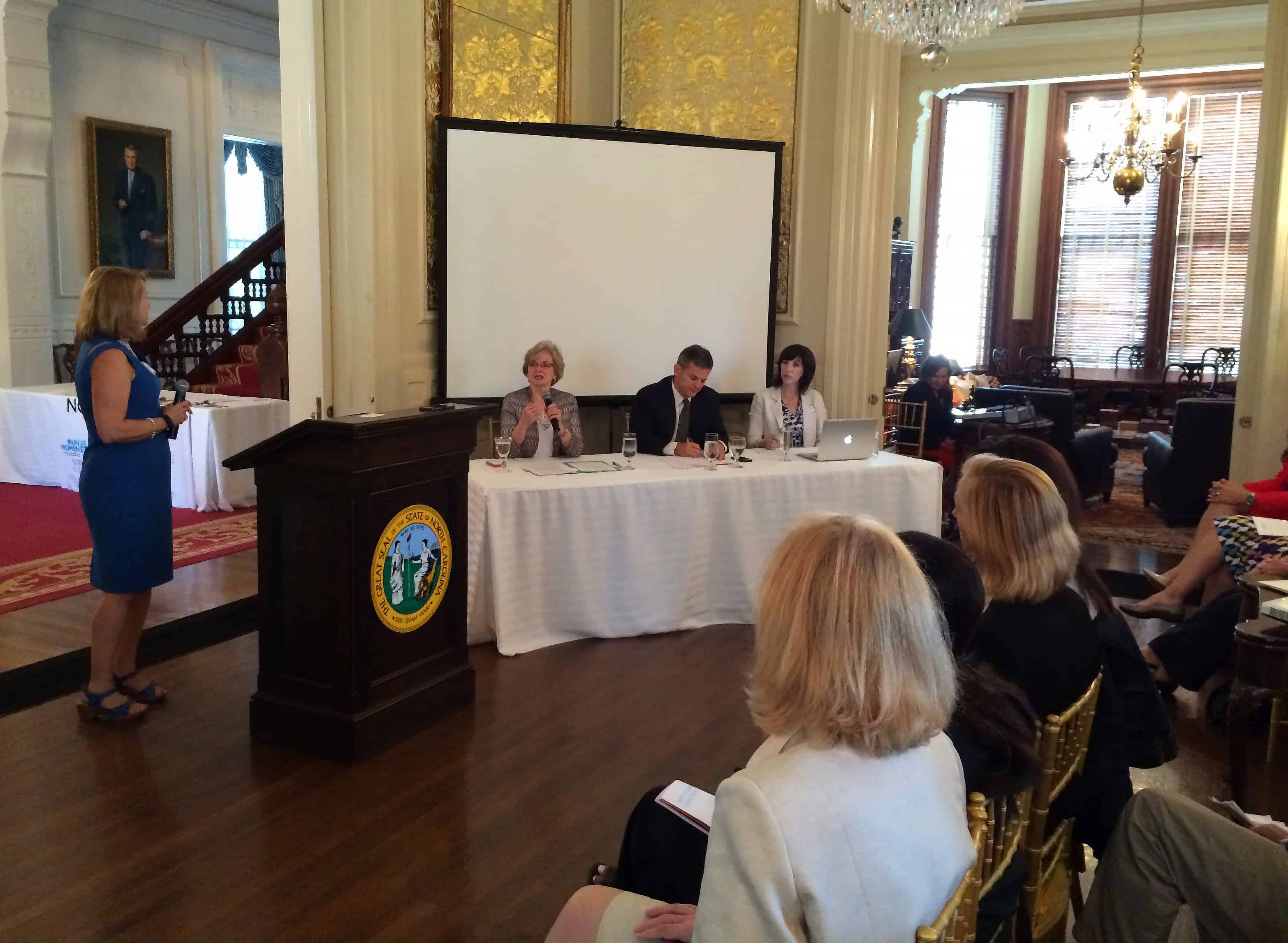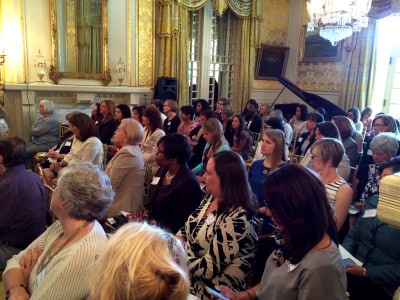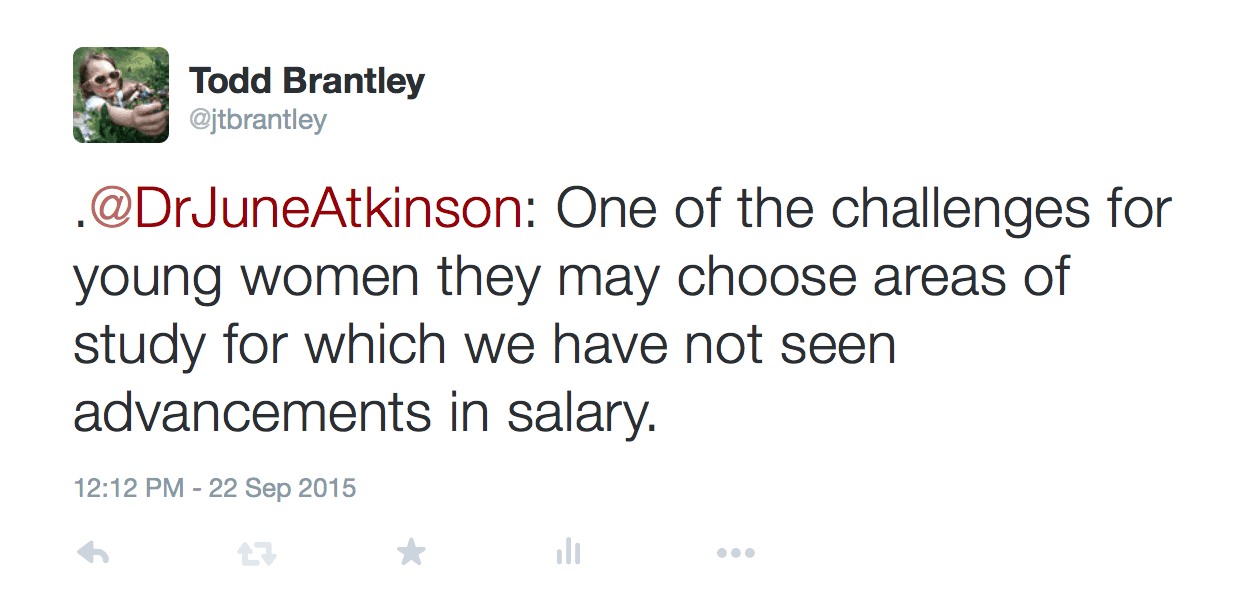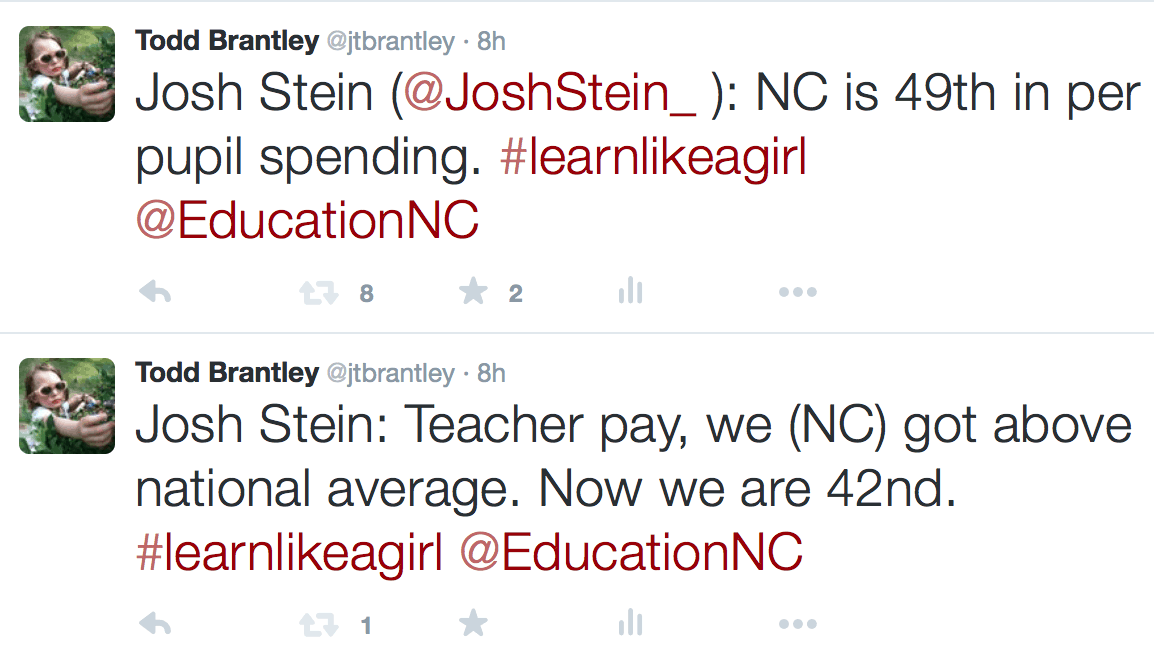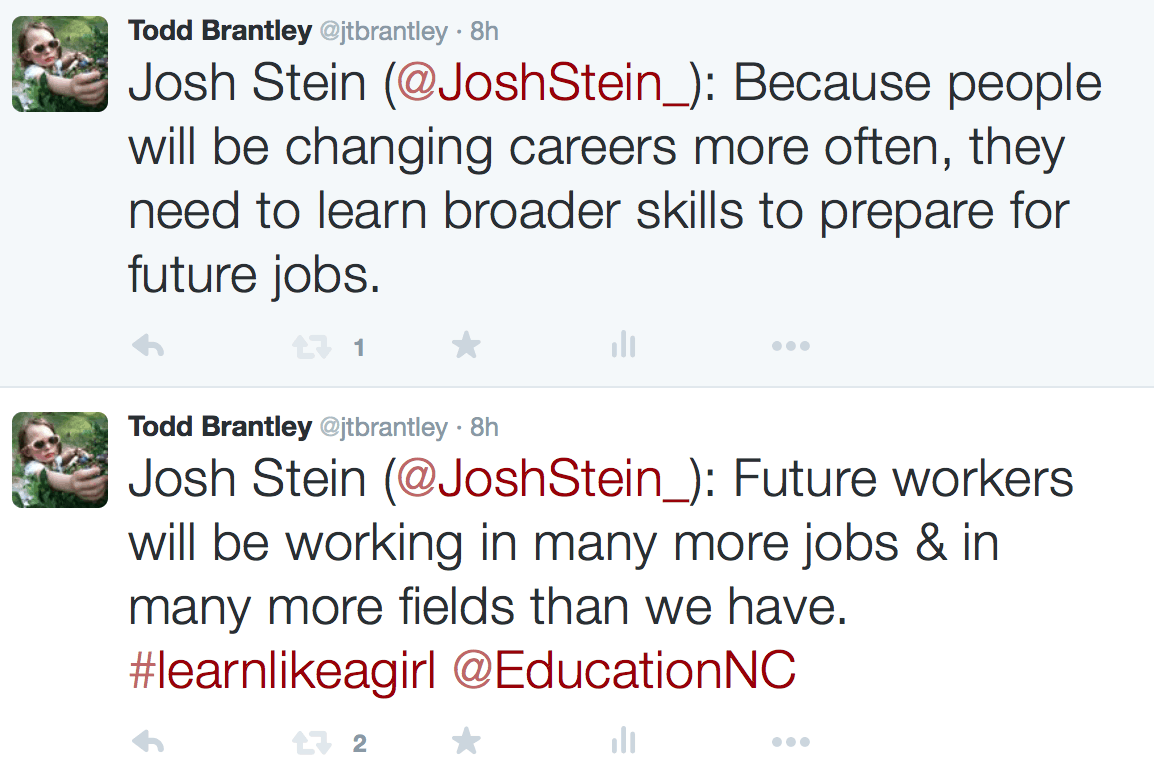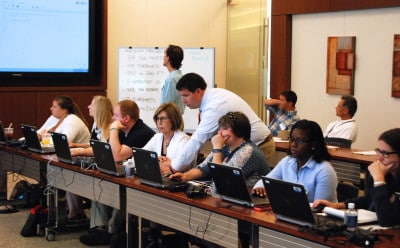The North Carolina Chapter of the U.S. National Committee for United Nations Women held its second annual learning and engagement luncheon yesterday at the Governor’s Mansion in Raleigh.
The event — “Learn Like a Girl: Gender, Education, Empowerment” — covered a wide-range of issues and challenges facing young women, both locally and globally, from human trafficking to online sexual harassment.
But of the spectrum of issues covered, education was the hot topic, specifically in regard to funding for public education, the public perception of the teaching profession, and access to higher education.
The panel for the event was moderated by Tina Wilson, IBM manager of corporate citizenship and affairs, and included State Superintendent of the Public Schools of North Carolina Dr. June Atkinson, Senator and Minority Whip Josh Stein (D-Wake), and Andrea Conner, founder of Learn and Lead Globally.
On the topic of education, moderator Wilson noted that Dr. June Atkinson was the first women to be elected to the office of Superintendent of the Public Schools in North Carolina.
Dr. Atkinson stated that while progress had been made in the state with females now graduating high school at higher rates than their male counterparts, with more females entering college, and with the highest number in the state’s history of females and African-Americans serving as superintendents at the local district level, there were still areas where disparities existed, most notably in salaries.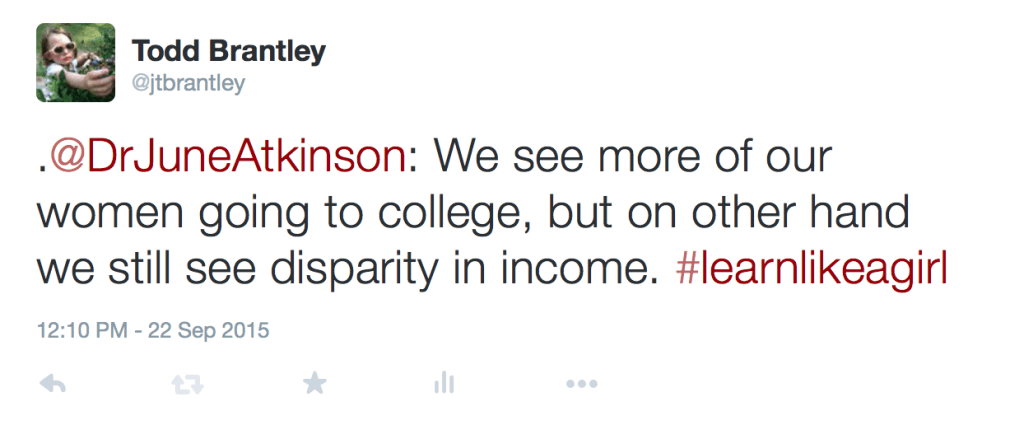
Dr. Atkinson also said the public perception of the teaching profession needed to improve. She noted that 80 percent of teachers were females and that most of those leaving the field were males. The way to change that was to publicly acknowledge the value of teachers and the challenges they face in their careers. And it has to start at the grass roots level with the citizenry.
Dr. Atkinson wondered why as a society we don’t value teachers like we value engineers.
Earlier in the discussion, Senator Stein noted that as a state North Carolina had fallen behind in its support of teachers and students in our public schools.
One audience member asked about college affordability. Dr. Atkinson noted that North Carolina was one of the few states that had an articulation agreement between the state’s community college system and its four-year university system. That agreement allows individuals to enter community colleges at a lower cost of tuition yet still be able to matriculate into one of the state’s four-year universities to receive a bachelor’s degree.
She also noted that per capita, North Carolina led the country in the number of early colleges, hybrid high school-postsecondary settings where students can earn college credit or even an associate’s degree while still in high school.
Another audience member asked the panelists their views on single-gender schools in the state. Senator Stein was in support of those options for students, noting that the one-size-fits-all model of education was not always in the best interest of students.
On the topic of STEM education, Senator Stein noted with technology changing at such a rapid pace and with more career fluidity than in past generations, there needed to be more emphasis on a broader set of work skills, like communication, to supplement technological skill sets that might be obsolete in a few years time.
All panelists agreed on the importance of role models and mentors for young females in underrepresented careers such as the STEM fields.
Andrea Conner said the media could do a better job of presenting women in strong leadership roles. Dr. Atkinson agreed, citing a survey that found the thing that most influences a child’s future career is the media.
Therein lies the importance of role models and mentors, real-world relationships that can encourage and guide young females in careers that might otherwise be stereotyped as “geeky” or male only.
